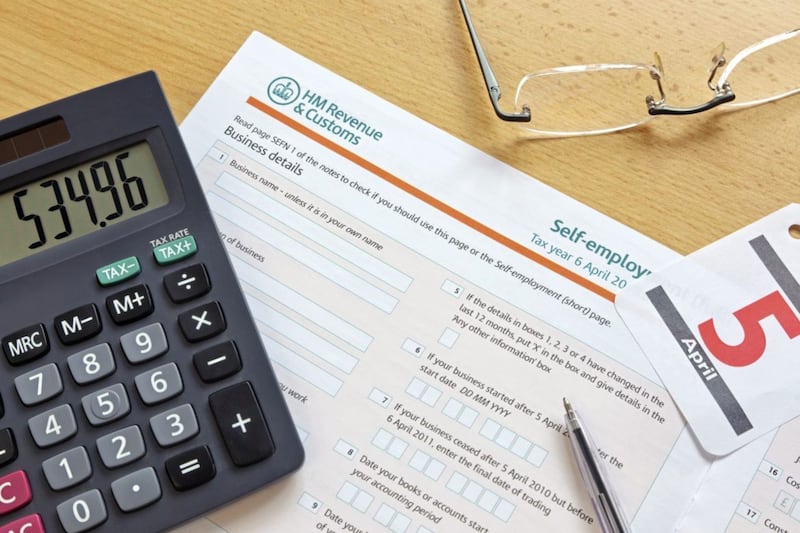ARE you part of the UK’s ‘forgotten generation’ – do you work for yourself?
A tradesman I know once said that the great thing about being self-employed is that the boss always likes you, but financially it can be a long, hard road. Fickle clients can leave you, and you spend half your time drumming up new business, or chasing unpaid bills. Some news just in will be a financial wake-up call for you.
In the Republic, the government has launched a crackdown on employers who falsely mark staff as self-employed. Fines for doing this have just nearly doubled to €25,000. Employers in the south have been using this dodgy practice to avoid paying PRSI, the contributions which fund the social welfare system, and benefits such as holiday and sick pay.
It’s a reminder that, north or south, self-employed workers face significant disadvantages. As one of the UK’s five million self-employed workers, you may make up 15 per cent of the workforce, but in terms of financial security, you’re part of a forgotten generation.
Do you remember a movie a few years ago called ‘Speed’? Don’t know if you saw it, Sandra Bullock was driving a bus with a bomb on board set to go off if she slowed to below 50mph. It’s just like being self-employed. If you slow down at all, all hell lets loose.
In other words, you’re a real workhorse. There’s no pay if you get sick, no holiday pay if you take time off. You do not enjoy the same kind of ‘safety net’ that employees enjoy. Most importantly, you don’t have the benefits of employer contributions to a pension, and there’s not much of a structure in place to nudge you to save.
Well, in this esteemed column, we always like to pose the big question.
Here’s this week’s big question: what about later in life? Things might be going grand today, but will you still be fit to lug those ladders or pull up those shutters when you’re pushing 70? Do you still want to be working at that time? Could this be the year to plan for the freedom to spend time with your grandchildren, and for the financial freedom to treat them now and again? Well, again there are concerns.
Earlier this year we highlighted some new research by HMRC (stands for ‘He Must Recover Cash’ – i.e. the taxman). This showed that, unless you are one of the highest-earning self-employed workers, you are probably neglecting your retirement planning.
The research showed that HMRC paid the vast majority of pensions tax relief for the self-employed at 40 per cent, the higher tax band for people earning more than £46,350 at today’s rates. This implies that self-employed people earning less than that are largely not contributing to a pension.
Even the roll-out of auto-enrolment into workplace pensions, which began in October 2012 and completed in 2017, did not include the self-employed. The government said that they didn’t consider auto-enrolment to be the right solution for those working for themselves. Sorry, boys and girls, but the government forgot about you again.
What is clear from the government’s repeated sidelining of the self-employed is that if you work for yourself, you need to look after yourself, particularly with regard to your retirement planning. It is obvious that, for the foreseeable at least, the state is not going to do it for you.
There’s also the fact that you’ll be waiting longer for your state pension. The state pension age is on the rise, and in March rose above 65 for the first time, to 65 and 3 months. For those entitled to a full single-tier pension, which is currently worth £164.35 a week, this three-month delay means a total loss of just over £2,100 of state pension income.
By September 2020, the state pension age will have risen to age 66 for both men and women. It’s expected to force many self-employed to delay their planned retirement.
This is already very clear for self-employed women, where the employment rate of 60 year olds has risen from 45 per cent to 58 per cent since 2009.
There’s a phrase ‘trapped in the workplace’ and it’s being heard more frequently these days, especially where the self-employed are concerned. It refers, of course, to those who have to work on, because they simply can’t afford to hang up their boots.
Setting up a personal pension that could pay out before, and then alongside, your state pension, could ensure that you don’t have that ‘behind bars’ feeling when you’re getting to your desired retirement age.
So what’s your answer to the big question?
Remember: you’re only part of the forgotten generation for as long as you forget yourself!
:: Michael Kennedy and Shaun Doherty are independent financial advisers and pensions specialists, and can be contacted on 028 71886005 . Further information is on the Facebook page 'Kennedy Independent Financial Advice Ltd or the website www.mkennedyfinancial.com







